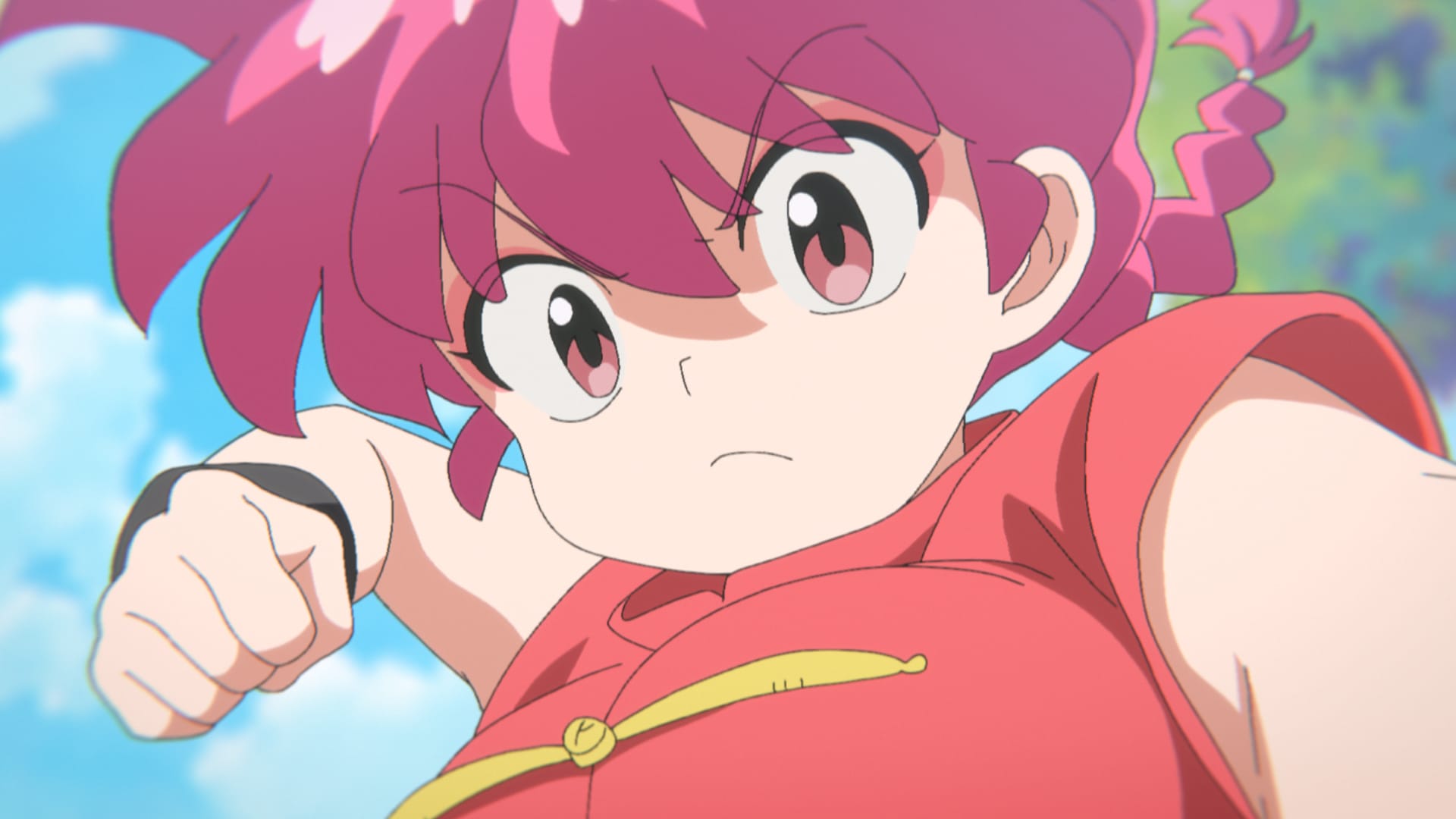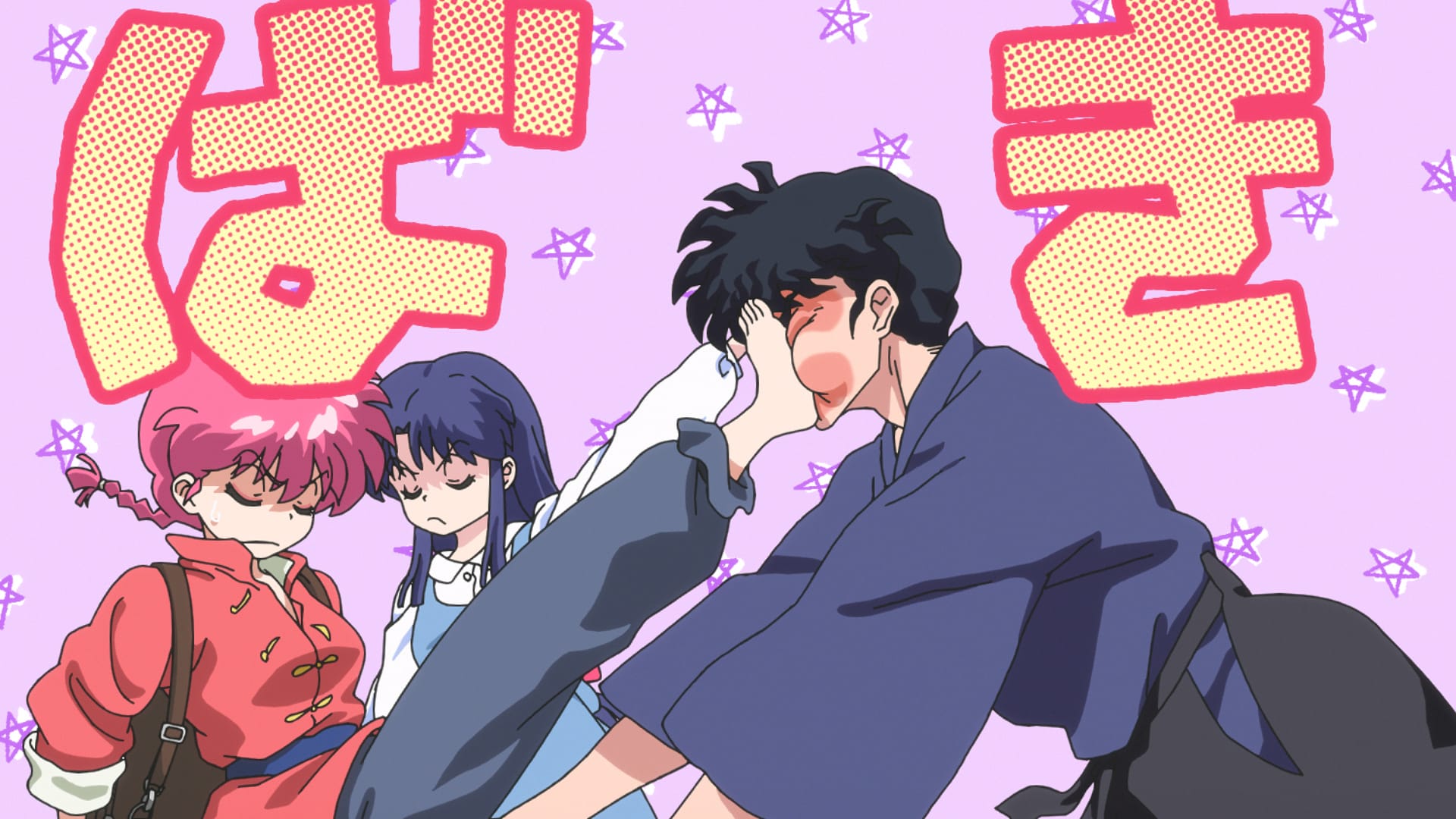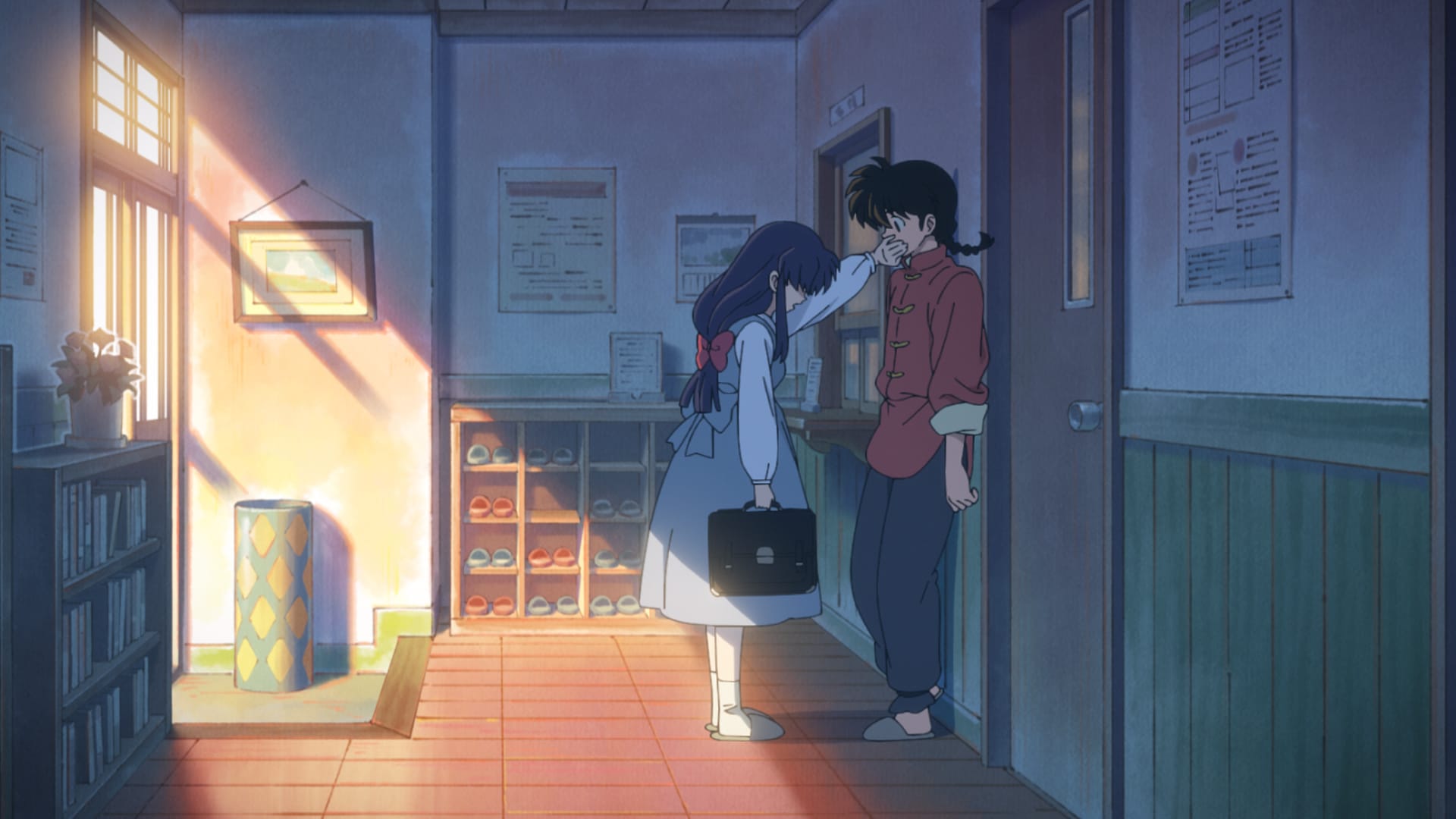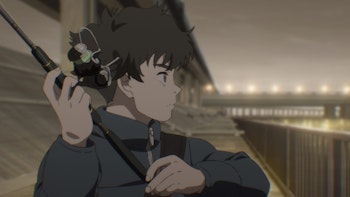
It’s always a bit more difficult to discuss a remake like Ranma 1/2. It’s good, but is that enough?
When you think of iconic anime from the 80s, a few obvious names come to mind. Dragon Ball, obviously. Macross. City Hunter, Gunbuster. The list goes on. Many have endured in popularity. Some have been recently remade, like Urusei Yatsura, based on Rumiko Takahashi’s beloved manga. Ranma 1/2 is another series from the same mangaka that had a beloved 1980s manga and a questionably-necessary modern-day remake.
Let’s be clear, this is a good anime. It’s a faithful, somewhat safe remake, but it’s also hard to go wrong when sticking so faithfully to such strong source material, especially since the team behind the series is willing to go the extra step to instill fan-favorite characters and moments with flair and excitement. From the bright block colors that bring it to life with a visually-distinct flair to the fun integration of dynamic manga-style SFX to emphasize the action while never losing its fluidity even in daily conversation, it’s not only pleasant on the eyes but stands out when placed against other shows airing this season.
The concept is a simple one, but was venerated and beloved in its time to almost become cliche in later years. At its heart, this is a romantic comedy, with Ranma Saotome and Akane Tendo arranged to be betrothed by their parents in order to carry on the Tendo family dojo. Both are talented martial artists, but neither are exactly thrilled to be marrying one another.

Which makes sense. The two barely know one another, and Akane hates men. That said, they got along fine at first thanks to Ranma’a unique quirk. After falling into a hot spring high in the Bayankala Mountain Range of Qinghai Province in China, Ranma turns into a woman whenever soaked in water. They first met at the dojo with Ranma in female form, and got a nasty surprise when Akane witnessed his naked male body leaving the bath as she was about to enter. Que shenanigans and a familiar routine that the other supporting characters in the series inevitably get wrapped up in.
It’s a classic formula, but it just works. By being so faithful, it’s hard not to view much of the humor as being somewhat dated, with a lot of it deriving from the hilarity of gender-swapping at inopportune moments with plenty of undress. It never feels ogling, however, which is a fact shared with the original and allows the series to remain entertaining and mile-a-minute hilarious in a way where many modern comedies can struggle to stifle a chuckle. The gender-swapping also allows the series to at times be more introspective even when these moments are more laced in comedy, such as in one awkward romantic confession to Ranma’s female form by the school’s otherwise-brutish kendo team captain Tatewaki Kuno who also has a crush on Akane.

Top it up with a strong opening theme from Ano that’s understandably viral on social media and some good action sequences that imbue the martial arts framing of the series with genuine appreciation and excitement for not just the thrill of the fight but the art form of the technique, and you have an entertaining week-to-week comedy that fits well into your schedule.
Yet despite all this, it’s hard not to feel at least a little cynical about the series. We’ve had more than our share of remakes in recent years, and this isn’t even the first time in the last few years that we’ve seen a remake of Rumiko Takahashi’s work. The recent Urusei Yatsura anime remake failed to capture the excitement of audiences in the way the original series did during its heyday, while the more action-focused appeal of Ranma and its slightly more modern premise touching on gender has helped propel it to streaming success in Japan and abroad. Readily-available weekly and global access coupled with heavy promotion from the exclusive streaming and production partner for the series, Netflix, have certainly helped.
But it’s all familiar territory. Comfort food is fine. I’ve found this show to be the perfect series to watch on the train when commuting into Tokyo, even if some fanservice sequences leave me rushing to minimize the screen or check to make sure no one is watching. It’s popular. It’s hard to complain when there’s still fun to be had here.

But even enjoying an episode afterwards leaves me cold, and somewhat in disdain for the state of anime. Strong IP from other mediums, remakes and sequels are the only shows able to rise above the overproduction sludge that fades into the background, and the fate of a series feels destined before a show even starts airing. Japanese fandom is not immune to the impact of pre-built hype and trope-y storytelling. This reality only prevents new ideas and more challenging stories from rising to the surface, and more notably holds anime back from being the trendsetter it so clearly wants to be. Creators are siphoned into feeding a hype machine rather than telling a creatively-fulfilling story we haven’t all heard before, with risks created in vanishingly-fewer numbers to diminishing success. When it’s as faithful as Ranma 1/2, it’s hard to even say these creators are using pre-established material to elevate the craft, either. It’s a familiar character to justify a new line of merch, maybe sell a few boxes of cup ramen, before moving on to the next thing, unthinking.
It’s fun, but it’s hardly exciting. Any predictions on what the next remake will be?










